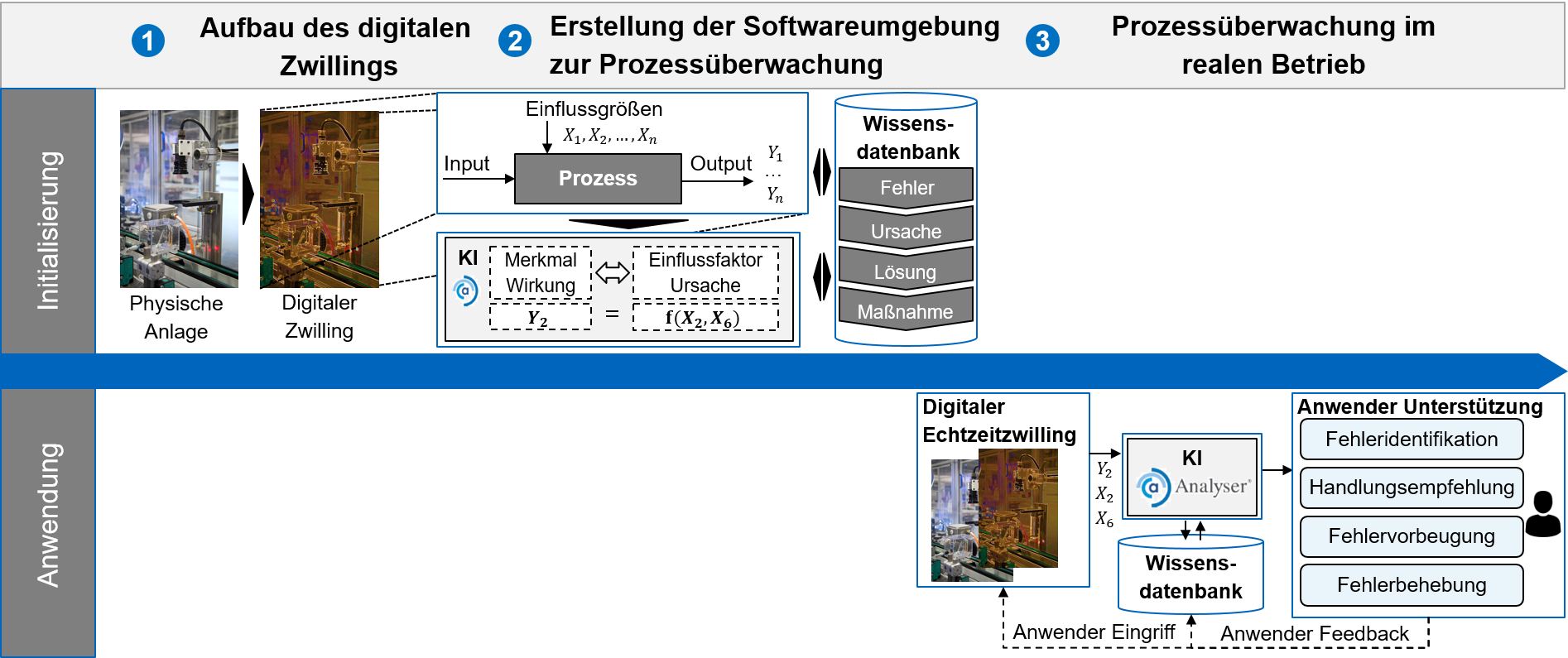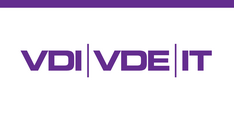IntellProMo - Intelligent, automated process monitoring of assembly lines
The aim of the research project is the early detection and prevention of irregularities in automated assembly systems. This is achieved by automated, operationally parallel process monitoring with the help of digitally consistent information models. The current status of the plant is recorded and mapped in a real-time capable digital twin. The data processed in this way is analyzed using methods of artificial intelligence. The user is alerted to conspicuous values and supported by recommendations for action so that he can intervene promptly or even preventatively in case of difficulties.
Motivation
In order to meet the challenges of globalization, classic industrialized countries with high wage levels, such as Germany, are particularly dependent on the use of highly automated production facilities. The use of modern technologies makes it possible to increase productivity levels and thus secure jobs at these locations. However, this also poses challenges. Particularly in the case of high-quality products, such as safety-critical electronic components for the automotive industry, the systems used are very complex and exist multiple causal relationships with a large number of influencing variables between the system itself, the assembly process and the product produced. These are usually unknown to the person in charge of the plant and are not covered by conventional quality tests. The results are unpredictable production errors with a high diversity in the error patterns and causes, which impair the quality of the produced parts or lead to a shutdown of the plant. Finding and eliminating these errors is usually difficult and time-consuming. Due to the many, often interdependent influencing variables as well as the unknown mechanisms of action, a high degree of expert knowledge is required for error analysis.
Objective
The objective of the planned research project "IntellProMo" is to reduce negative effects on assembly, such as long downtimes and high reject rates, which result from the late detection and correction of irregularities in the assembly process. In order to achieve this goal, relevant process and system parameters are to be (partially) automatically monitored in order to warn the system operator at an early stage if problems occur or potential problems arise. Recommendations of action warn and support the operator to eliminate the problem. Process monitoring should be set up with little effort. This is achieved by the automated creation of a real-time capable digital twin of the production plant, which represents the relevant parameters of the plant in a semantically determined way, independent of the actually used hardware. Using this database, process errors can then be automatically identified, predicted and, in the best case, proactively prevented by the user through the application of methods of artificial intelligence (AI), machine learning and Big Data.
Approach
In the present project, the digital twin serves as an interface between the physical plant and an AI software. When generated automatically for the first time, it represents all field devices and their capabilities as well as the underlying communication architecture in the assembly system. On the other hand, the digital twin displays the existing data streams as well as control options in a structured form. For this purpose, existing generic information models and methods are to be extended accordingly. The AI software analyzes the digital twin with regard to the influencing variables relevant for process monitoring and makes demands on the data processing system (e.g. transmission rate, data volume, latency times, ...) in the operationally parallel application. The digital twin, which is complete at the beginning, should be reduced to the contents relevant for process monitoring in order to ensure real-time operation. The assistance system should serve the user as a central platform for the (partially) automated setup and execution of the monitoring of assembly systems.




